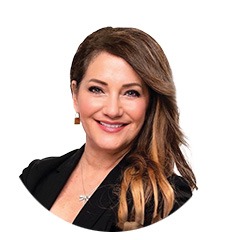Boundaries and definitions for mental health
Wellness is top of mind for everyone in our industry. We have built a brave and safe column for you to ask any questions anonymously unless you wish to share your name. It’s simple, you send a question to editor@smartmeetings.com and a certified peer support specialist will respond.
Congratulations on a great magazine with solid content. Keep up the great work.I have a question for the Pick Our Brain column on Mental Health and Wellness in our industry.
There is a lot of talk about mental health amongst event professionals these days. My question is twofold, first can you prevent mental health problems? And how do I know if I’m unwell?
—Melissa Deslaurier in Toronto
Mental Health Prevention and Definitions
Mental health is the overall wellness of how you think, regulate your feelings and behave. Sometimes people experience a significant disturbance in this mental functioning. A mental disorder may be present when patterns or changes in thinking, feeling or behaving cause distress or disrupt a person’s ability to function. A mental health disorder may affect how well you:
- Maintain relationships
- Function in social settings
- Perform at work
- Learn at a level expected for your age and intelligence
- Participate in other important activities
Cultural norms and social expectations also play a role in defining mental health disorders. There is no standard measure across cultures to determine whether a behavior is normal or when it becomes disruptive. What might be normal in one society may be a cause for concern in another.
Read More: Work Smart: Mental Health Checklist
Prevention is part of a routine of healthy choices and wellness. Eating, sleeping, physical exercise, meditation is all part of mental fitness. Whatever brings you joy and happiness is the best prescription that anyone could ask for.
When our industry roared back last year, we were so thrilled to be back in business that we stepped over backwards to meet tight deadlines and pull off events that normally take months to plan—all within weeks. Now, our clients know that we are capable of such feats, I’m afraid that we’ve set ourselves up for this being the new normal. Is it too late to reset?
—Kelley Douglass in New Orleans
3 Steps for Setting Boundaries
Great question and one that many event profs would like an answer to. It’s never too late to establish boundaries. But it takes being honest with yourself, your direct reports and your clients. Many people in the industry worked so hard after the pandemic that they recognized that they had become machines taking orders rather than humans with feelings enjoying what was once a passion.
Setting boundaries is like finding peace. We are the masters of our own destiny and if we want to change course, then we can if we have the courage, self-awareness and confidence in saying, “no.”
If I were to ask every industry professional about their experience post-pandemic, they would likely respond with similar stories of burnout, stress and anxiety. The pent-up demand left life balance in the dust until most found the strength to be true to themselves.
Here are some simple strategies:
- Identify (and communicate) your availability
- Use technology to your advantage
- Honor your true capacity
You may need to have a conversation with your supervisor or colleagues about your clients. There was a time when I was able to do X, Y and Z, but now things have changed and I’ve realized I can’t really be my best while working in that way. What would it look like to adjust this?
—
 Janice Cardinale is a Smart Women in Meetings Award winner and the founder of Event Minds Matter. She is certified in Peer Support, positive and emotional intelligence and shares an abundance of knowledge with her community of like-minded event professionals whose mission it is to “build brave spaces to amplify the industry’s conversation on mental health and wellness.”
Janice Cardinale is a Smart Women in Meetings Award winner and the founder of Event Minds Matter. She is certified in Peer Support, positive and emotional intelligence and shares an abundance of knowledge with her community of like-minded event professionals whose mission it is to “build brave spaces to amplify the industry’s conversation on mental health and wellness.”
This article appears in the September 2023 issue. You can subscribe to the magazine here.




